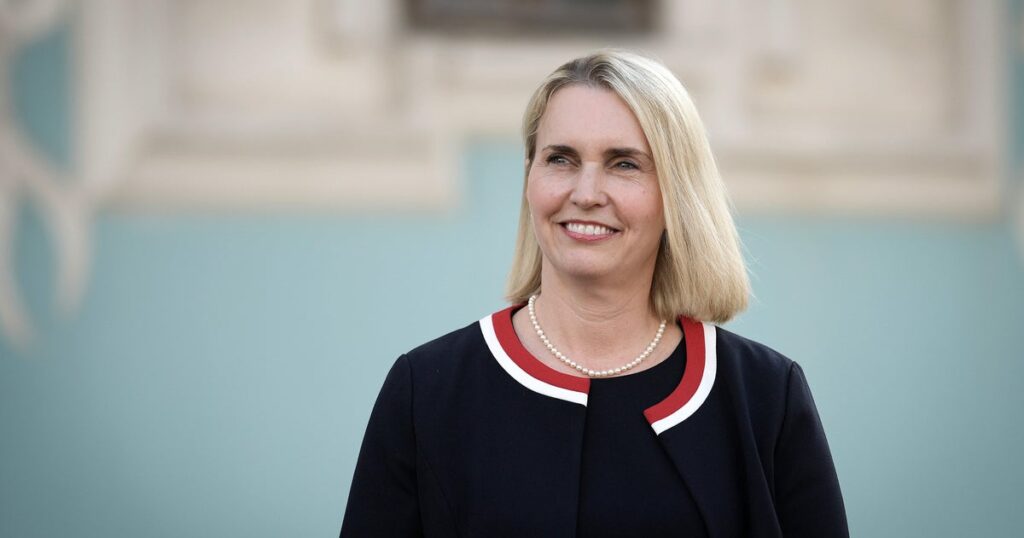U.S. ambassador to Ukraine Bridget Brink intends to resign from her post early, three sources told CBS News.
The State Department confirmed her intent to step down Thursday afternoon.
“Ambassador Brink is stepping down. She’s been the ambassador there for three years – that’s a long time in a war zone. And frankly, the war has gone on for far too long,” a State Department spokesperson said in a statement. “The real issue is whether the Russians and Ukrainians are ready to do what’s necessary to end this war.”
Brink has not formally submitted resignation papers but she has been making farewell calls to colleagues, sources said.
Ambassador Brink has not responded to a request for comment.
One senior U.S. official told CBS that her resignation stems from an unusual mix of personal and policy concerns, including the recent USAID layoffs. Brink is serving in a war zone far from her family, since Kyiv is designated as an unaccompanied post, where officers serve without bringing their families with them.
Secretary of State Marco Rubio intended to keep Brink, a career foreign service officer, in the job and declined the initial resignation she had submitted in January as part of the standard turnover between administrations.
Brink’s resignation comes at a pivotal moment for U.S.-Ukraine relations. The Trump administration has tried to broker an end to the Russian invasion in part by ending the policy of diplomatically isolating Vladimir Putin, who invaded Ukraine in February 2022.
While Ukraine accepted a U.S. ceasefire proposal, Russia has not. It is not clear whether President Trump has set any deadline for conclusion of the diplomacy, but he’s continuing to have special envoy to the Middle East Steve Witkoff at the fore of outreach to Russia.
At NATO meeting last week, Rubio indicated U.S. patience with Russia was wearing thin.
“We will know soon enough, in a matter of weeks, not months, whether Russia is serious about peace or not. I hope they are,” Rubio said on April 4.
Mr. Trump’s longtime fascination with Putin and frustration with Ukraine’s Zelenskyy has complicated the diplomacy, and prompted concern from Western allies.
His distrust of Zelenskyy was visible in an explosive Oval Office confrontation in February. Mr. Trump told Zelenskyy to reach a ceasefire agreement with Russia or “we’re out,” and Vice President JD Vance accused the Ukrainian president of being “disrespectful” after he challenged the vice president’s assertion that the war had dragged on because of a lack of diplomacy from Ukraine and the Biden administration. Vice President JD Vance also admonished Zelensky: “Have you said ‘thank you’ once, this entire meeting?”
The Trump administration subsequently paused military and intelligence aid to Ukraine amid the fallout. That intelligence support resumed once Ukraine agreed to go along with the Trump administration’s outreach to Putin. Mr. Trump continues to sit on the nearly $4 billion in remaining U.S. military aid already designated for Ukraine. The U.S. has been a key supplier of weapons since the Russian invasion began.




